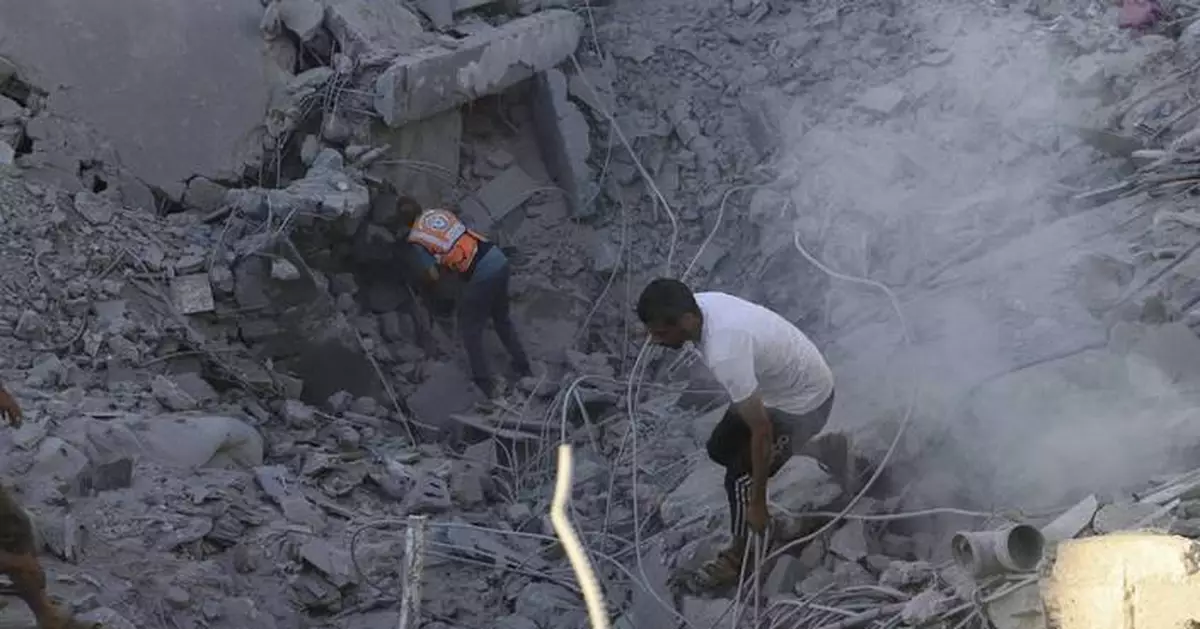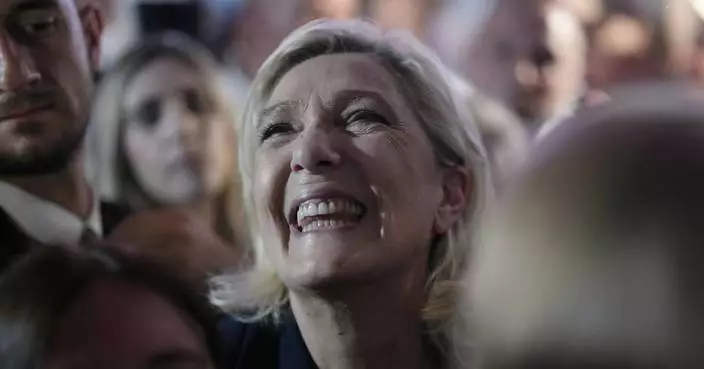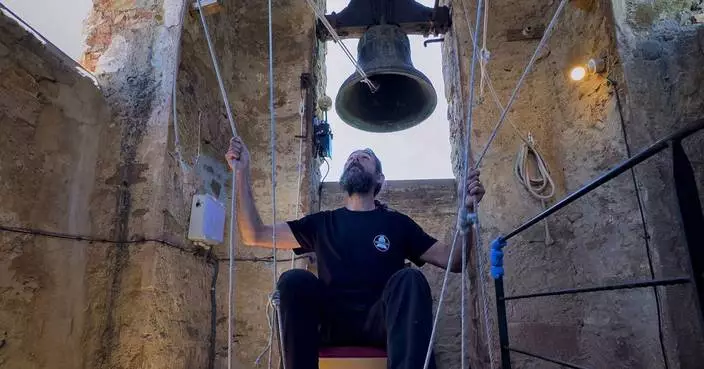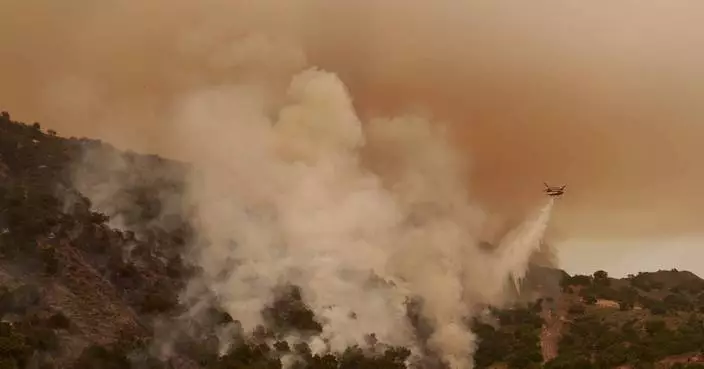JERUSALEM (AP) — The Israeli government has approved plans to build nearly 5,300 new homes in settlements in the occupied West Bank, a monitoring group said Thursday, the latest in a campaign to accelerate settlement expansion, aimed at cementing Israeli control over the territory and preventing the establishment of a future Palestinian state.
Word of the decision emerged as diplomatic efforts aimed at ending the nine-month war in Gaza appeared to be stirring back to life after a weekslong hiatus. Prime Minister Benjamin Netanyahu's office said he had decided to send negotiators to resume negotiations. A day earlier, the militant Hamas group handed mediators its latest response to a U.S.-backed proposal for a deal.
Fighting intensified between Israel and Lebanon’s Hezbollah, with the militant group saying Thursday it fired more than 200 rockets and exploding drones into northern Israel to avenge the killing of a senior commander in an Israeli airstrike the day before.
Months of exchanges have literally set the Israeli-Lebanese border ablaze and raised fears of a potentially even more devastating war in the Middle East. Hezbollah has said it will halt its attacks if there is a cease-fire between Hamas — a fellow Iran-backed ally — and Israel.
Israel's turbocharged settlement drive threatens to further stoke tensions in the West Bank, which has seen a surge in violence since the war in Gaza began on Oct. 7.
The Israeli anti-settlement monitoring Peace Now said the government's Higher Planning Council had approved or advanced plans for 5,295 homes in dozens of settlements across the West Bank. It also “legalized” three informal outposts as new neighborhoods of existing settlements in the Jordan Valley and near the city of Hebron.
On Wednesday, Peace Now said Israel approved the largest seizure of land in the West Bank in over three decades. COGAT, the Israeli defense body that oversees the planning council, referred questions to Netanyahu's office, which did not immediately respond to a request for comment.
Netanyahu’s government is dominated by settlers and their supporters. The hard-line nationalist finance minister, Bazalel Smotrich, himself a settler, has been put in charge of settlement policy and has said his rapid expansion drive is in part intended to ensure a Palestinian state cannot be created. In an escalation over past months, settlers have carried out more than 1,000 attacks on Palestinians, causing deaths, damaging property and in some cases prompting Palestinians to flee villages.
The Palestinians seek the West Bank, east Jerusalem and Gaza – areas captured by Israel in the 1967 Mideast war – for an independent state.
The new housing approvals could also rankle Israel’s ally, the United States, which speaks out against settlements, though it has done little to pressure Israel on the issue.
Gaza’s Health Ministry said Thursday that the number of Palestinians killed by Israel’s campaign in Gaza had climbed past 38,000. The ministry does not differentiate between combatants and civilians in its count. The war began when Hamas-led militants launched a surprise attack on Oct. 7 into southern Israel, killing around 1,200 people and abducting another 250 people.
The revival of cease-fire talks appeared to mark another attempt by U.S., Qatari and Egyptian mediators to overcome the gap that has repeatedly thwarted a deal over the past months. Hamas wants a deal that ensures Israeli troops fully leave Gaza and the war ends; Netanyahu says the war cannot end before Hamas is eliminated.
Israeli negotiators are expected to arrive in Doha, Qatar's capital, for the talks as early as Friday, with American, Egyptian and Qatari officials present.
A senior Biden administration official said the White House viewed the resumption of negotiations as a “breakthrough” that “moves the process forward” while cautioning that there is still much work to do.
Netanyahu spoke earlier on Thursday with President Joe Biden. Netanyahu's office said he told Biden that Israel is committed "to finish the war only after achieving all of its objectives” — a reference to the twin war goals of rescuing hostages and destroying Hamas.
Biden made clear to Netanyahu that “it’s time to bring the deal to closure,” said the administration official, who spoke on condition of anonymity to discuss the 30-minute call.
The U.S. has rallied world support behind a plan for a phased cease-fire in Gaza that calls for the release of all hostages still held by Hamas in return for a lasting truce and the withdrawal of Israeli forces from Gaza.
So far, neither side appears to have fully embraced it.
Last month, Hamas suggested “amendments” to the proposal, some of which the U.S. said were unworkable. Talks ground to a halt. After the U.S. put forward a new version, Hamas said Wednesday it sent a new response to Egypt and Qatar. Hamas political official Bassem Naim said the group “responded with some ideas to bridge the gap” between the two sides, without elaborating.
For his part, Netanyahu has given conflicting stances — he has said Israel is committed to the proposal outlined by Biden in a May 31 speech. But in a TV interview last month, he said he was only prepared to make a “partial deal,” and would continue the war "after a pause.”
At its core, the U.S. proposal calls for a three-phase process.
The first phase would bring a cease-fire, a pullback of Israeli forces from all densely populated areas of Gaza and the release of a number of hostages, including women, older people and the wounded, in exchange for the release of hundreds of Palestinian prisoners. After some hostages were released during a November cease-fire, militants still hold around 80 hostages and the remains of 40 others.
During the 42 days of phase one, the parties would negotiate the terms of phase two.
The negotiations are meant to lead to a “sustainable calm” and the withdrawal of all Israeli troops from Gaza – with the release by Hamas of all remaining male hostages in return for an Israeli release of Palestinian prisoners. The third phase would see the return of the remains of hostages.
The transition from the first to the second phase has appeared to be the main sticking point.
Hamas is concerned that Israel will restart the war after the first phase, perhaps after making unrealistic demands in the talks. Israeli officials have said they want the negotiations to lead to Hamas’ removal from power in Gaza — a provision not spelled out in the proposal. They have also pushed for a time limit on negotiations to keep pressure on Hamas and prevent it from drawing out talks and the initial cease-fire.
The U.S. administration official indicated that Hamas has moved from its position demanding guarantees of a permanent cease-fire to begin the three-phase deal. Hamas' response indicates that there is a “decent understanding of what would have to happen” to move from phase one to phase two, the official said.
Chehayeb reported from Beirut. Associated Press writers Abby Sewell in Beirut and Aamer Madhani in Washington contributed to this report.
Follow AP’s coverage of the war in Gaza at https://apnews.com/hub/israel-hamas-war
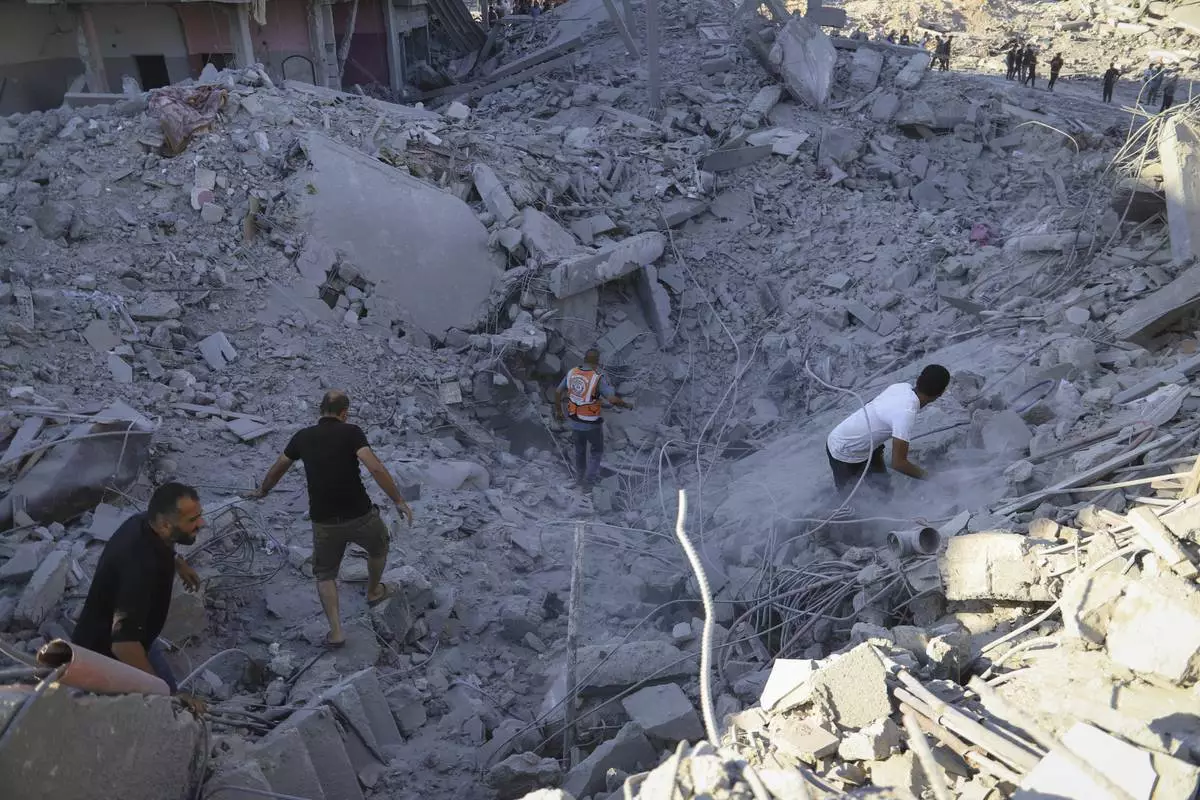
Palestinians search for bodies and survivors in the rubble of a residential building destroyed in an Israeli airstrike in Khan Younis, Gaza Strip, Wednesday, July 3, 2024. (AP Photo /Jehad Alshrafi)
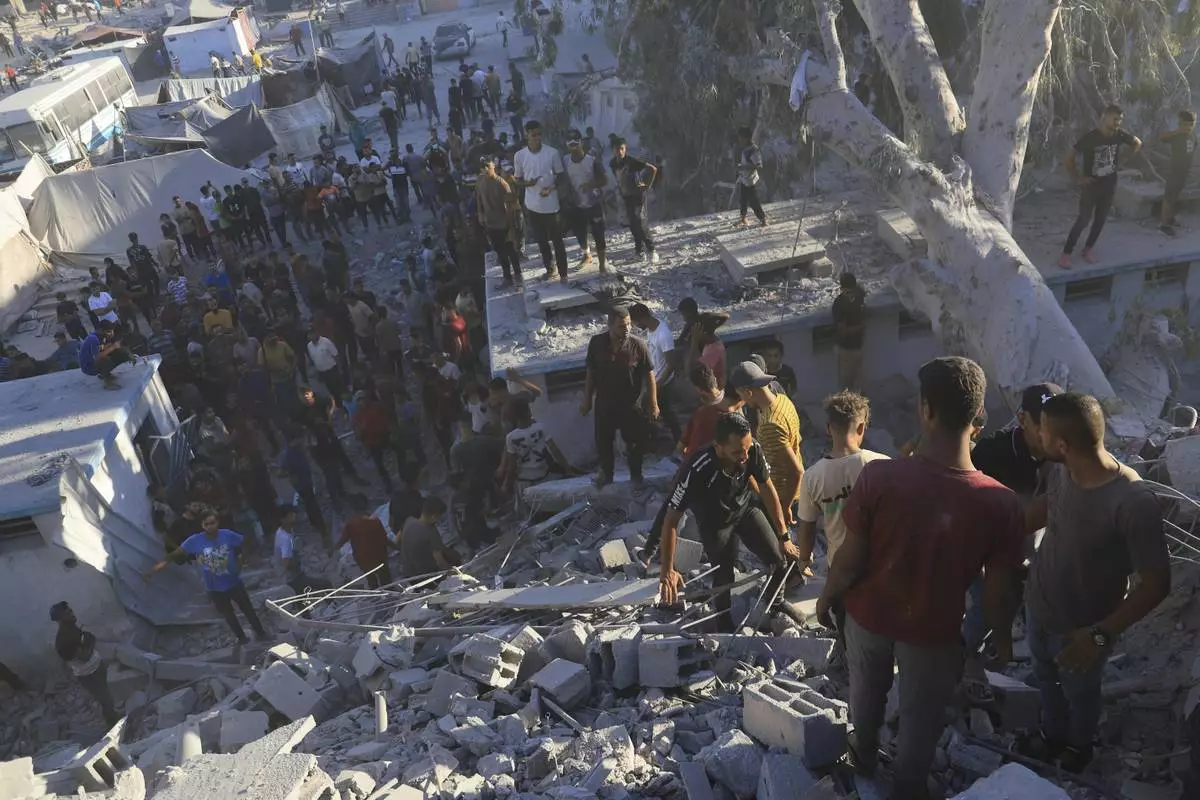
Palestinians search for bodies and survivors in the rubble of a residential building destroyed in an Israeli airstrike in Khan Younis, Gaza Strip, Wednesday, July 3, 2024. (AP Photo /Jehad Alshrafi)
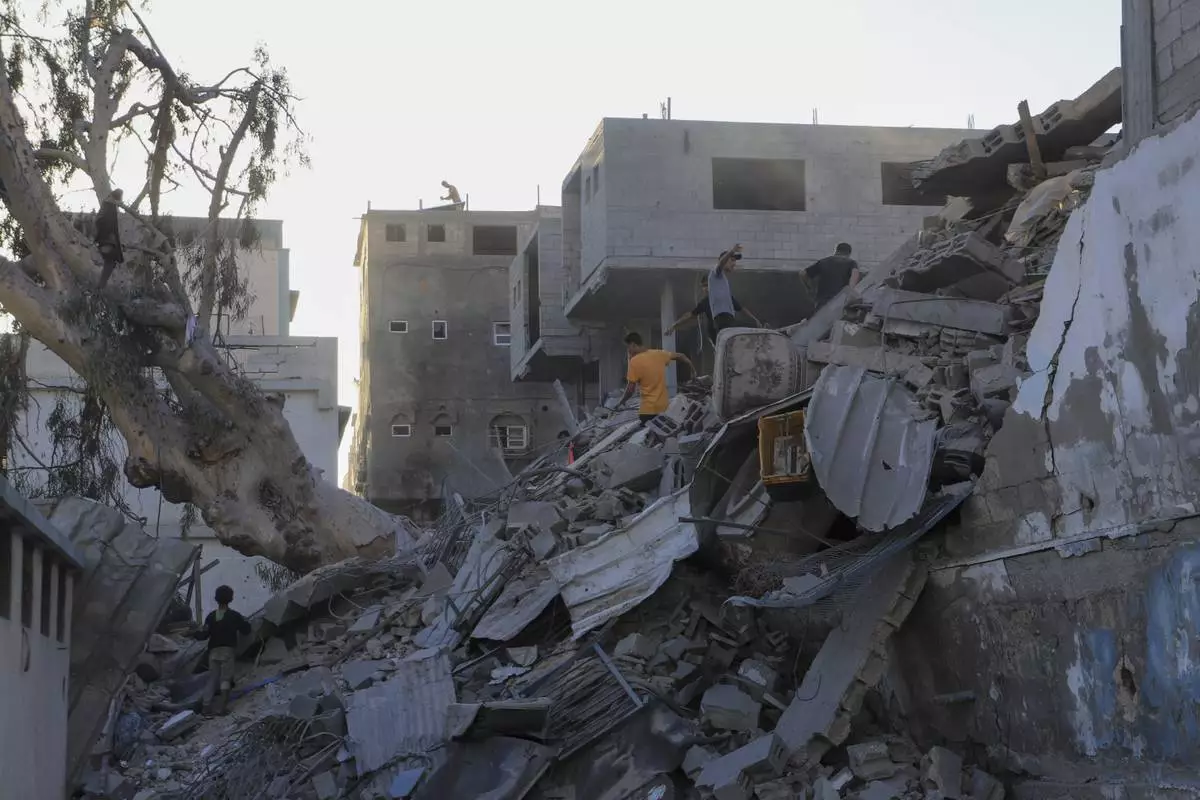
Palestinians search for bodies and survivors in the rubble of a residential building destroyed in an Israeli airstrike in Khan Younis, Gaza Strip, Wednesday, July 3, 2024. (AP Photo /Jehad Alshrafi)
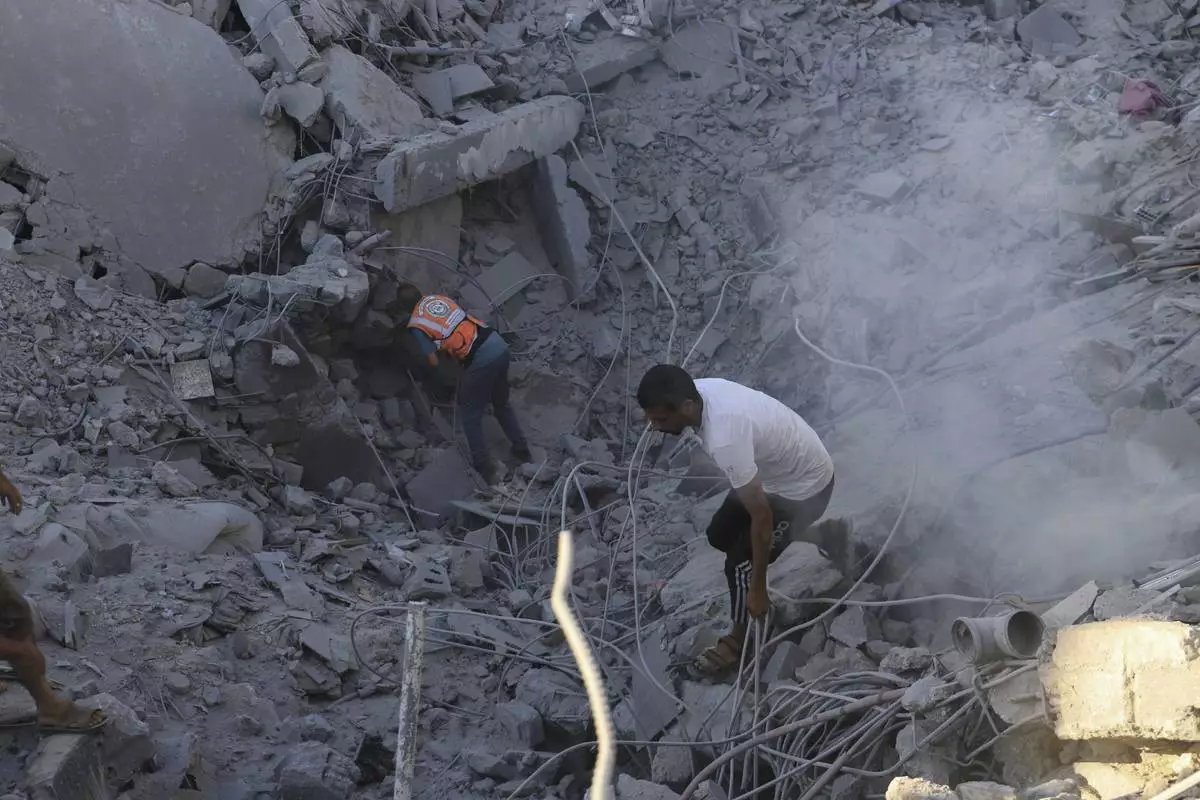
Palestinians search for bodies and survivors in the rubble of a residential building destroyed in an Israeli airstrike in Khan Younis, Gaza Strip, Wednesday, July 3, 2024. (AP Photo /Jehad Alshrafi)
PARIS (AP) — Photos of blood-red hands on a Holocaust memorial. Caskets at the Eiffel Tower. A fake French military recruitment drive calling for soldiers in Ukraine, and major French news sites improbably registered in an obscure Pacific territory, population 15,000.
All are part of disinformation campaigns orchestrated out of Russia and targeting France, according to French officials and cybersecurity experts in Europe and the United States. France’s legislative elections and the Paris Olympics sent them into overdrive.
More than a dozen reports issued in the past year point to an intensifying effort from Russia to undermine France, particularly the upcoming Games, and President Emmanuel Macron, who is one of Ukraine's most vocal supporters in Europe.
This story, supported by the Pulitzer Center for Crisis Reporting, is part of an Associated Press series covering threats to democracy in Europe.
The Russian campaigns sowing anti-French disinformation began online in early summer 2023, but first became tangible in October, when more than 1,000 bots linked to Russia relayed photos of graffitied Stars of David in Paris and its suburbs.
A French intelligence report said the Russian intelligence agency FSB ordered the tagging, as well as subsequent vandalism of a memorial to those who helped rescue Jews from the Holocaust.
Photos from each event were amplified on social media by fake accounts linked to the Russian disinformation site RRN, according to cybersecurity experts. Russia denies any such campaigns. The French intelligence report says RRN is part of a larger operation orchestrated by Sergei Kiriyenko, a ranking Kremlin official.
“You have to see this as an ecosystem,” said a French military official, who spoke on condition of anonymity to reveal information about the Russian effort. “It’s a hybrid strategy.”
The tags and the vandalism had no direct link to Russia's war in Ukraine, but they provoked a strong reaction from the French political class, with denunciations in the legislature and public debate. Antisemitic attacks are on the rise in France, and the war in Gaza has proven divisive.
The Stars of David could be interpreted either as support for Israel or as opposition. The effect was to sow division and unease. French Jews in particular have found themselves unwittingly thrust into the political fray despite, at just 500,000 people, making up a small proportion of the French population.
In March, just after Macron discussed the possibility of mobilizing the French military in Ukraine, a fake recruitment drive went up for the French army in Ukraine, spawning a series of posts in Russian- and French-language Telegram channels that got picked up in Russian and Belarusian media, according to a separate French government report seen by The Associated Press. On June 1, caskets appeared outside the Eiffel Tower, bearing the inscription “French soldiers in Ukraine.”
The larger disinformation efforts show little traction in France, but the Russian audience may have been the real target, officials said, by showing that Russia’s war in Ukraine is, as Putin has said, really a war with the West.
Among the broader goals, the French military official said, was a long-term and steady effort to sow social discord, erode faith in the media and democratic governments, undermine NATO, and sap Western support for Ukraine. Denigrating the Olympics, from which most Russian athletes are banned, is a bonus, according to French officials monitoring the increasingly strident posts warning of imminent unrest ahead of the Games.
On June 9, the French far-right National Rally trounced Macron’s party in elections for the European Parliament. The party has historically been close to Russia: One of its leading figures, Marine Le Pen, cultivated ties to Putin for many years and supported Russia’s illegal annexation of Crimea from Ukraine in 2014. And its leading contender for prime minister, Jordan Bardella, has said he opposes sending long-range weapons to Kyiv.
In more than 4,400 posts gathered since mid-November by antibot4navalny, a collective that analyzes Russian bot behavior, those targeting audiences in France and Germany predominated. The number of weekly posts ranged from 100 to 200 except for the week of May 5, when it dropped near zero, the data showed. That week, as it happens, was a holiday in Russia.
Many of the posts redirect either to RRN or to sites that appear identical to major French media, but with the domain — and content — changed. At least two of the more recent mirrored sites are registered in Wallis and Futuna, a French Pacific territory 10 time zones from Paris. A click on the top of the fake page redirects back to the real news sites themselves to give the impression of authenticity. Other posts redirect to original sites controlled by the the campaign itself, dubbed Doppelganger.
The redirects shifted focus for the European elections and continued after Macron called the surprise legislative elections with just three weeks to spare. Three-quarters of posts from the week ahead of the June 30 first-round legislative vote that were directed toward a French audience focused on either criticizing Macron or boosting the National Rally, antibot4navalny found in data shared with The Associated Press.
One post on a fake site purported to be from Le Point, a current affairs magazine, and the French news agency AFP, criticizing Macron.
“Our leaders have no idea how ordinary French people live but are ready to destroy France in the name of aid for Ukraine,” read the headline on June 25.
Another site falsely claimed to be from Macron’s party, offering to pay 100 euros for a vote for him — and linking back to the party's true website. And still another inadvertently left a generative artificial intelligence prompt calling for the re-write of an article “taking a conservative stance against the liberal policies of the Macron administration,” according to findings last week from Insikt Group, the threat research division of the cybersecurity consultancy Recorded Future.
“They’re scraping automatically, sending the text to the AI and asking the AI to introduce bias or slants into the article and rewrite it,” said Clément Briens, an analyst for Recorded Future.
Briens said metrics tools embedded within the site are likely intended to prove that the campaigns were money well-spent for “whoever is doing the payouts for these operations.”
The French government cybersecurity watchdog, Viginum, has published multiple reports since June 2023 singling out Russian efforts to sow divisions in France and elsewhere. That was around the time that pro-Kremlin Telegram feeds started promoting “Olympics has Fallen” — a full-length fake Netflix film featuring an AI-generated voice resembling Tom Cruise that criticized the International Olympic Committee, according to the Microsoft Threat Analysis Center.
Microsoft said this campaign, which it dubbed Storm-1679, is fanning fears of violence at the Games and last fall disseminated digitally generated photos referring, among other things, to the attacks on Israeli athletes at the 1972 Olympics.
The latest effort, which started just after the first round of the elections on June 30, merges fears of violence related to both the Olympics and the risk of protests after the decisive second round, antibot4navalny found. Viginum released a new report Tuesday detailing the risks ahead for the Games — not for violence but for disinformation.
“Digital information manipulation campaigns have become a veritable instrument of destabilization of democracies,” Viginum said. “This global event will give untold informational exposure to malevolant foreign actors.” The word Russia appears nowhere.
Baptiste Robert, a French cybersecurity expert who ran unsuccessfully as an unaffiliated centrist in the legislative elections, called on his government — and especially lawmakers — to prepare for the digital threats to come.
“This is a global policy of Russia: They really want to push people into the extremes,” he said before the first-round vote. “It’s working perfectly right now.”
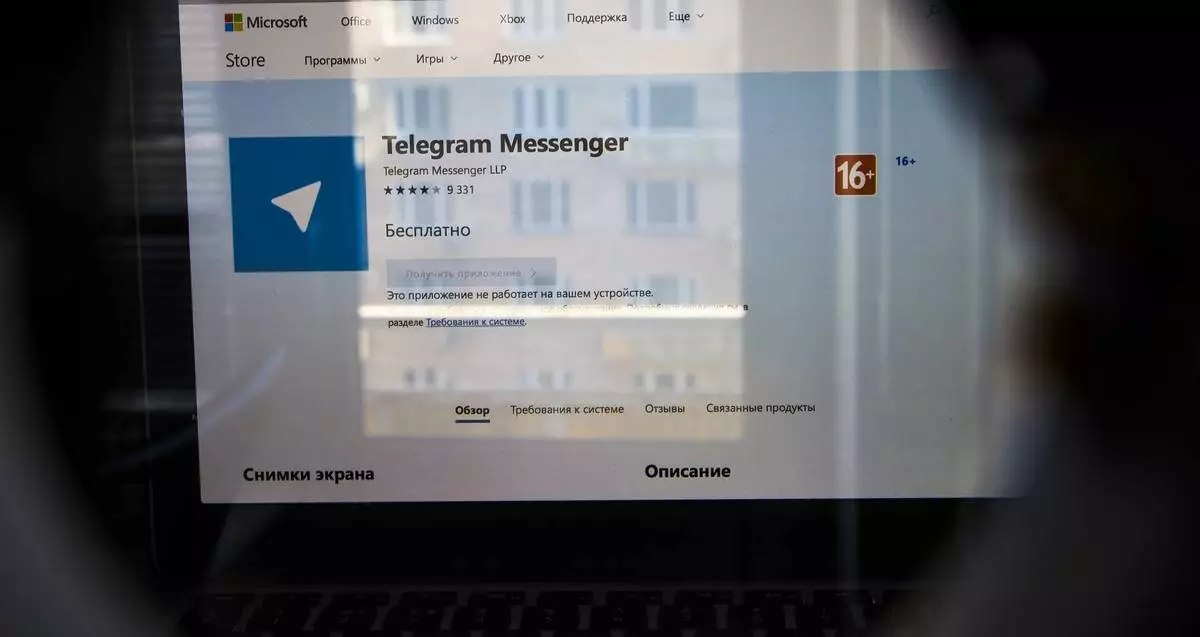
FILE - The website of the Telegram messaging app is seen on a computer's screen in Moscow, Russia, Friday, April 13, 2018. Cybersecurity experts and French officials say Russian disinformation campaigns against France are zeroing in on legislative elections and the Olympic Games which open in Paris at the end of the month. (AP Photo/Alexander Zemlianichenko, File)
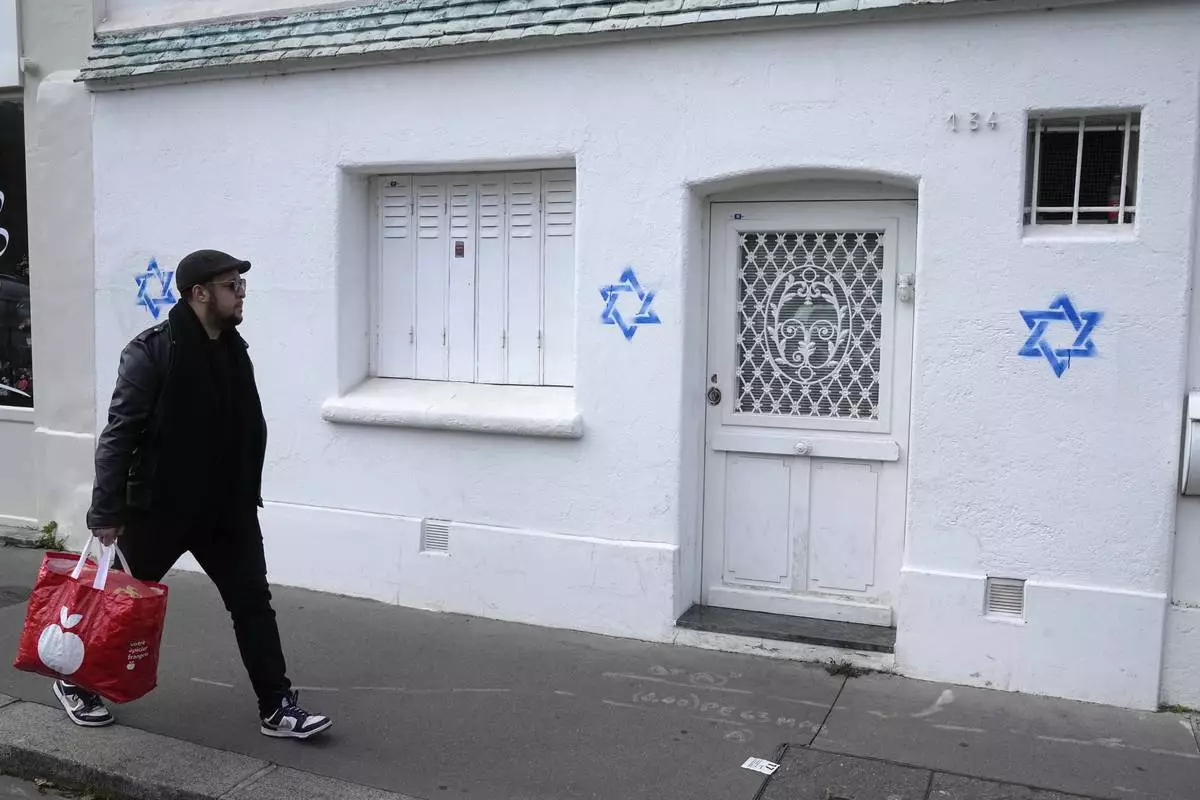
FILE - A man walks by Stars of David tagged on a wall in Paris, on Oct. 31, 2023. France says it has been the target of a Russian online destabilization campaign that used bots to whip up controversy and confusion about spray-painted Stars of David that appeared on Paris streets. French government officials accused Russia of operating a long-running online manipulation campaign against Ukraine's Western backers. (AP Photo/Michel Euler, File)
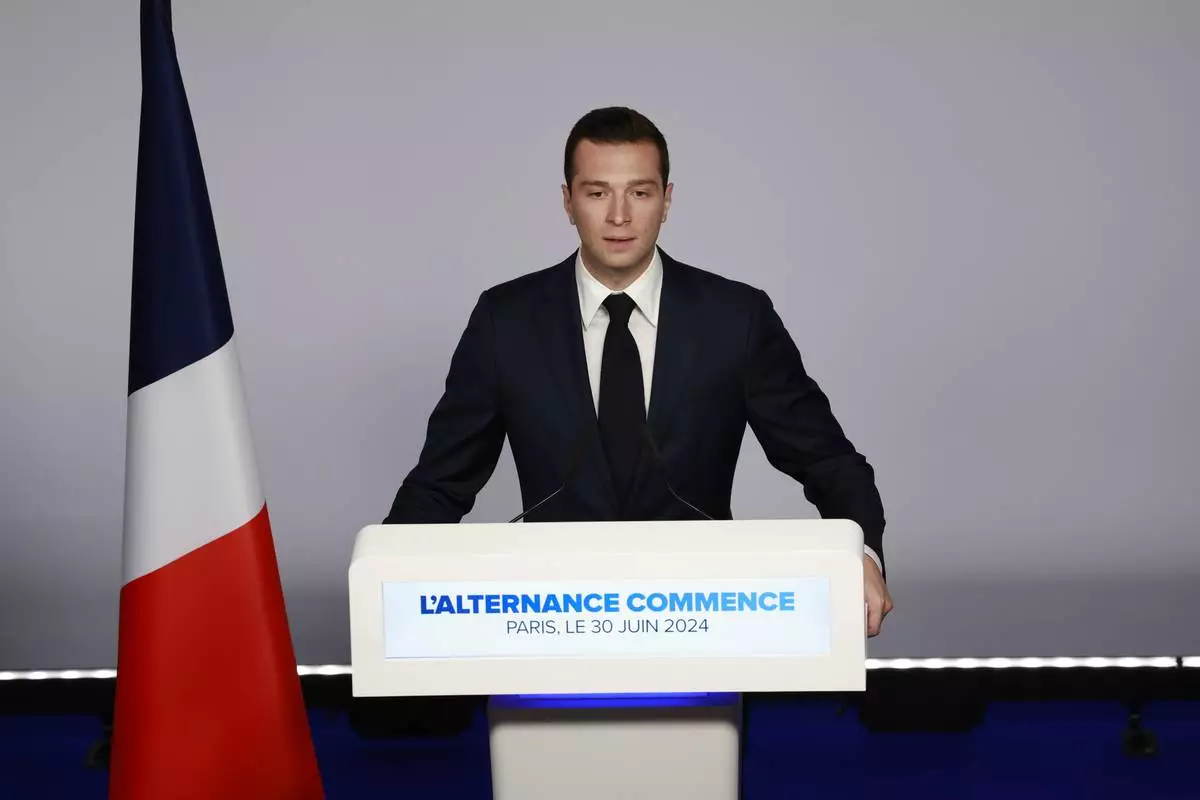
FILE - Far-right National Rally party president Jordan Bardella delivers his speech after the first round vote of the legislative election in Paris, Sunday, June 30, 2024. Bardella has said he opposes sending long-range weapons to Kyiv. (AP Photo/Aurelien Morissard, File)
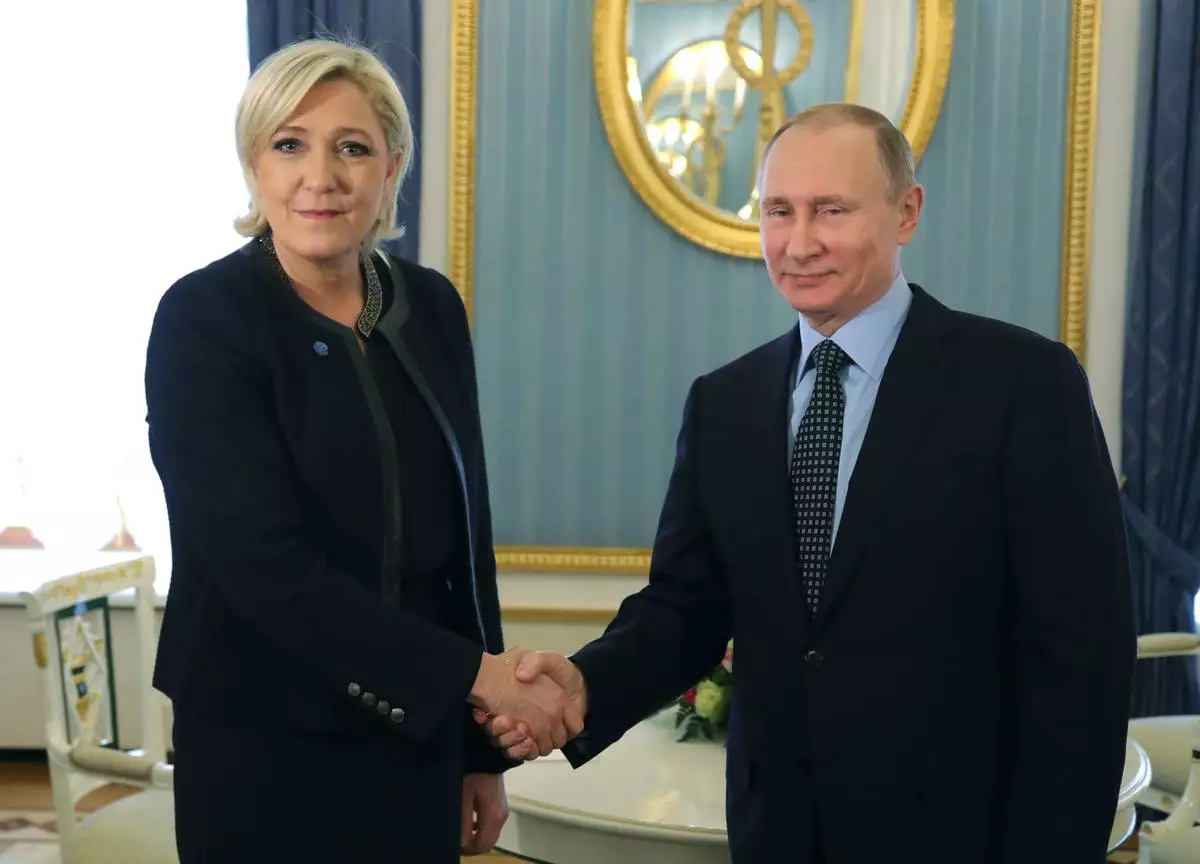
FILE - Russian President Vladimir Putin, right, shakes hands with French far-right presidential candidate Marine Le Pen, in the Kremlin in Moscow, Russia, Friday, March 24, 2017. On June 9, the French far-right National Rally trounced Macron’s party in elections for the European Parliament. The party has historically been close to Russia: one of its leading figures, Marine Le Pen, cultivated ties to Putin for many years and supported Russia’s illegal annexation of Crimea from Ukraine in 2014. (Mikhail Klimentyev, Sputnik, Kremlin Pool Photo via AP, File)

FILE - Voters wait at a polling station to vote in the first round of the French parliamentary election, in Lyon, central France, Sunday, June 30, 2024. Voters across mainland France are casting ballots in the first round of an exceptional parliamentary election. Cybersecurity experts and French officials say Russian disinformation campaigns against France are zeroing in on legislative elections and the Olympic Games which open in Paris at the end of the month. (AP Photo/Laurent Cipriani, File)
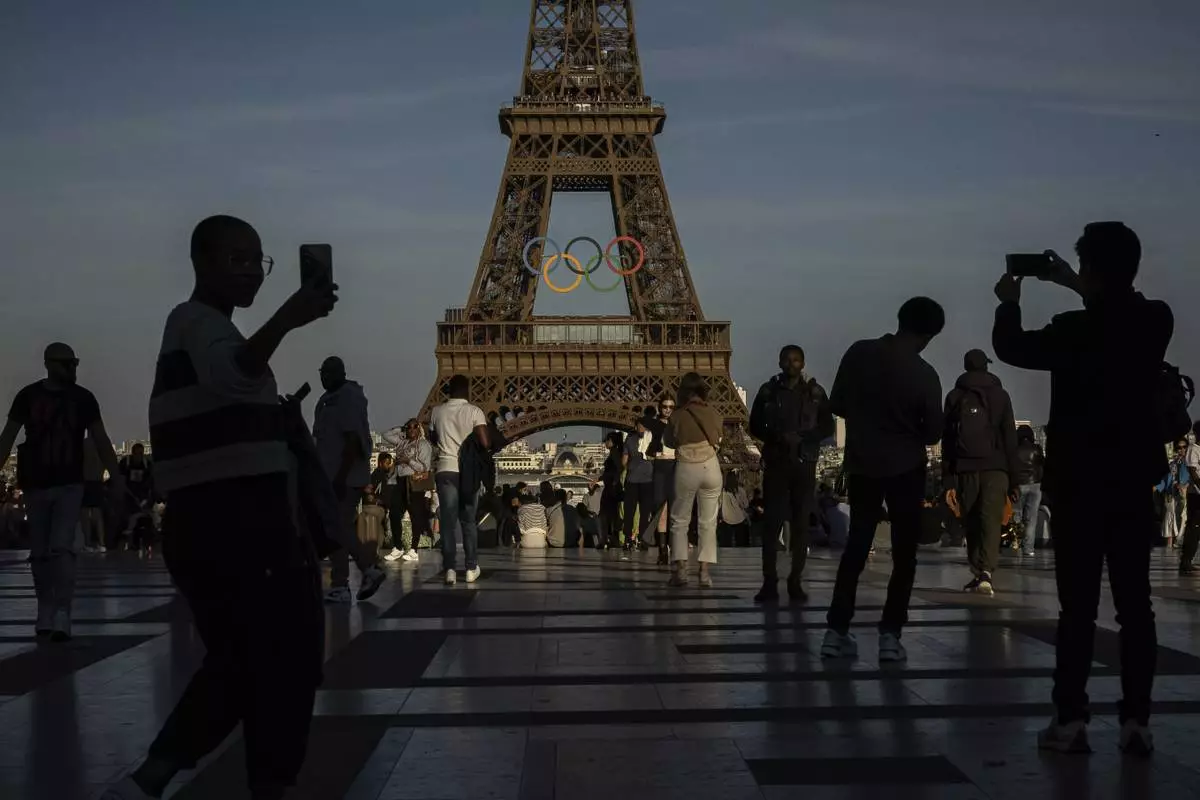
FILE - People use their smartphones near the Olympic rings that are displayed on the Eiffel Tower in Paris, June 7, 2024 in Paris. Cybersecurity experts and French officials say Russian disinformation campaigns against France are zeroing in on legislative elections and the Olympic Games which open in Paris at the end of the month. (AP Photo/Aurelien Morissard, File)






